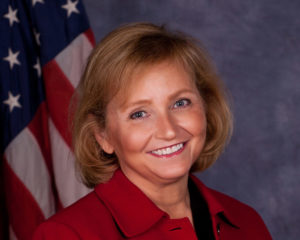
June 21, 2024
Special Session resulted in two bills becoming law, Senate Bill (SB) 1, tax relief for all Kansans, and House Bill (HB) 2001, an expansion of the Sales Tax And Revenue (STAR) Bonds program.
No State Income Tax On Social Security is a major win in SB 1 that will help over 76,000 Kansans. The average savings will be around $1,300 a year according to Legislative Research. I have been leading this effort for a few years. It is now law.
Lower Income Taxes for all Kansas taxpayers is a win; by decreasing the 5.7 bracket to 5.58, the 5.25 to 5.2, and 3.1 to 0; increasing the current $2,250 personal exemptions to $9,160 for a single filer, $18,320 for married, and $2,320 for each dependent; and increasing standard deductions 3% – single filer from $3,500 to $3,605 and married from $8,000 to $8,240. A Kansas family, married filing jointly with two dependents, taking a standard deduction will not pay income tax on the first $31,200 of earnings – which happens to be the current federal poverty level.
Property tax relief comes from increasing the current $44,700 exemption to $75,000 when calculating the K-12 20 mill. It was reported to be about $70 savings for a homeowner. It is much smaller than many of us wanted. Also lost were future tax cuts based on inflation, so as inflation increases the property tax exemption $75,000 for homeowners, all standard deductions and personal exemptions would have also increased – thus lowering your taxes. The grocery sales tax going to 0% earlier than next year was lost. Because the Governor and a handful of legislators refused to support tax bills that overwhelmingly passed during session, you will continue to pay 2% state sales tax on groceries until Jan 1, 2025. They blocked those items from becoming law with over $4 billion of taxpayer money sitting in the state coffers. SB 1 was as good as we could get this year for major tax cuts. SB 1 also abolishes the Local Ad Valorem Tax Reduction Fund (LAVTR) and the County & City Revenue Sharing Fund. No money has been transferred to these funds for over 20 years.
The STAR Bonds program is basically a loan via bonds used to build a project, except STAR Bonds, i.e. loans, are paid off with sales tax and other revenue (taxes) collected in a designated STAR Bond district. The owner of the property doesn’t pay for the facility being built, the STAR Bonds and taxes pay for most, if not all of it. HB 2001, expanding STAR Bonds, sailed through the special session. It didn’t have the votes during regular session, but over 30 lobbyists were hired to push it during a “special session”. HB 2001 allows STAR Bonds to be issued and to pay for 70% of a Chiefs, Royals, and/or practice stadiums to be built. It also allows for STAR Bonds to pay for businesses like restaurants, hotels and others, with sales taxes and other revenue (taxes). Previous STAR Bond projects were funded at 50%, not 70%, and had a 20 year payback, not the 30 year payback in HB 2001. Another change is that 100% of taxes collected on alcohol sales can be used to pay off the bonds. Can you believe the law requires revenues filed with Kansas Department of Revenue in connection to STAR bonds for sports stadiums “shall be kept confidential” and if disclosed subject to legal penalties? And then the law puts a handful of legislative leaders in control of extensions and one person in charge of the program. Local tax money, property taxes and such, could also be used to develop these stadiums. Just look at Wyandotte County property taxes to see what exempting the NASCAR racetrack and other properties do for local homeowners in the area. They have some of the highest mill levies, which means higher taxes. Another question, how will they secure the property to build? Eminent domain was used to force homeowners, landowners, businesses, and even a church to sell their property to build a racetrack. There are always reasons to vote yes or no on a bill, but the negatives outweighed the excitement of one of the most generous giveaways to a professional sports team ever, so I voted No.
It is an honor and a privilege to serve as your 12th District State Senator.
Caryn